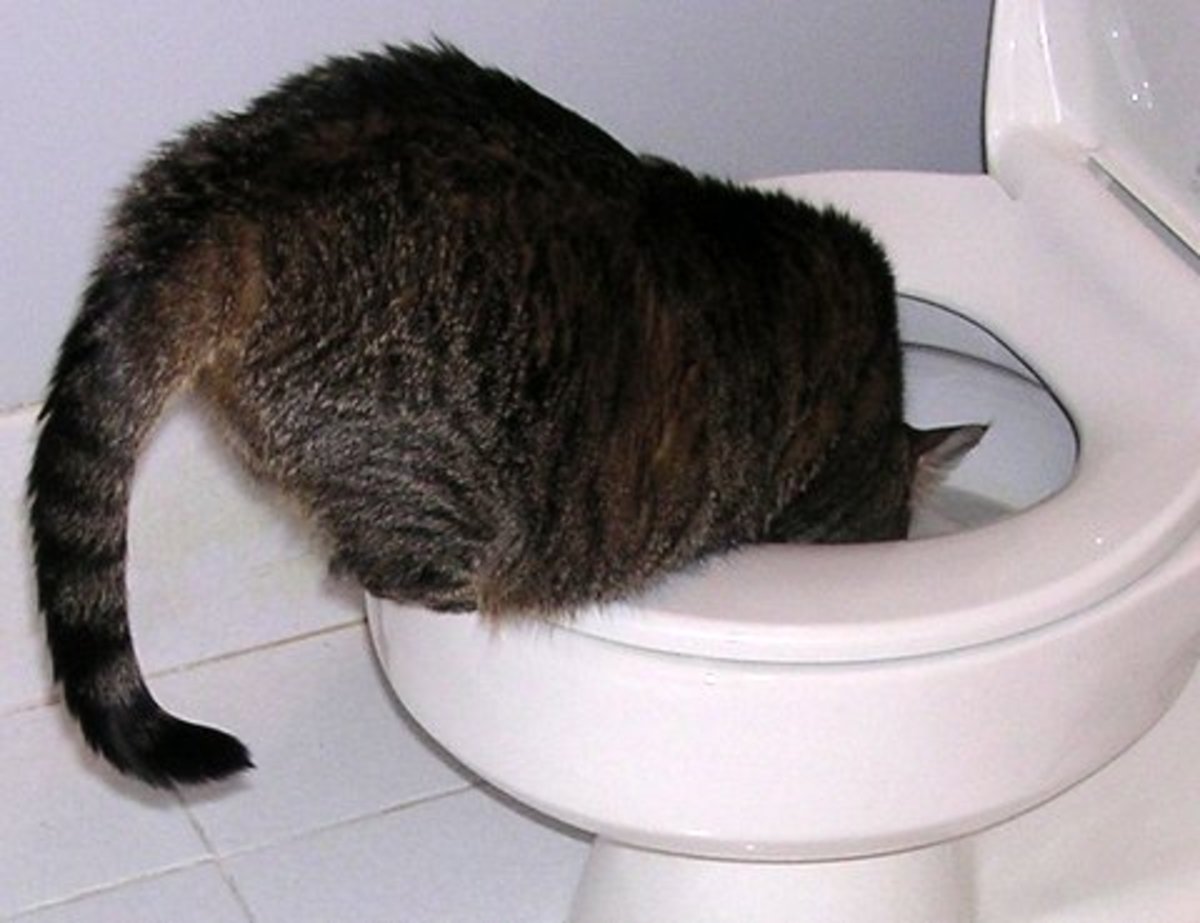Why You Must Never Flush Cat Poop Down Your Toilet - Important Facts
Why You Must Never Flush Cat Poop Down Your Toilet - Important Facts
Blog Article
Listed here in the next paragraph you will discover a lot of great additional info all about How to Dispose of Cat Poop and Litter Without Plastic Bags.

Intro
As cat owners, it's important to be mindful of how we throw away our feline close friends' waste. While it may seem practical to purge feline poop down the bathroom, this technique can have damaging consequences for both the setting and human wellness.
Ecological Impact
Purging pet cat poop introduces hazardous virus and bloodsuckers right into the water system, posturing a considerable danger to marine ecological communities. These pollutants can negatively impact marine life and concession water quality.
Wellness Risks
Along with ecological issues, flushing pet cat waste can likewise present wellness threats to human beings. Cat feces might have Toxoplasma gondii, a bloodsucker that can trigger toxoplasmosis-- a possibly extreme illness, especially for expectant ladies and people with weakened body immune systems.
Alternatives to Flushing
Fortunately, there are more secure and much more accountable means to get rid of cat poop. Consider the following options:
1. Scoop and Dispose in Trash
One of the most common method of dealing with cat poop is to scoop it into an eco-friendly bag and throw it in the trash. Be sure to use a committed trash scoop and deal with the waste immediately.
2. Usage Biodegradable Litter
Select naturally degradable pet cat litter made from materials such as corn or wheat. These trashes are eco-friendly and can be safely gotten rid of in the trash.
3. Hide in the Yard
If you have a lawn, think about hiding pet cat waste in a designated location far from veggie gardens and water sources. Make sure to dig deep adequate to avoid contamination of groundwater.
4. Mount a Pet Waste Disposal System
Invest in an animal waste disposal system particularly made for feline waste. These systems use enzymes to break down the waste, minimizing smell and ecological effect.
Conclusion
Accountable pet ownership expands beyond providing food and sanctuary-- it also involves appropriate waste management. By refraining from purging feline poop down the bathroom and choosing alternative disposal methods, we can lessen our environmental footprint and safeguard human health and wellness.
Why Can’t I Flush Cat Poop?
It Spreads a Parasite
Cats are frequently infected with a parasite called toxoplasma gondii. The parasite causes an infection called toxoplasmosis. It is usually harmless to cats. The parasite only uses cat poop as a host for its eggs. Otherwise, the cat’s immune system usually keeps the infection at low enough levels to maintain its own health. But it does not stop the develop of eggs. These eggs are tiny and surprisingly tough. They may survive for a year before they begin to grow. But that’s the problem.
Our wastewater system is not designed to deal with toxoplasmosis eggs. Instead, most eggs will flush from your toilet into sewers and wastewater management plants. After the sewage is treated for many other harmful things in it, it is typically released into local rivers, lakes, or oceans. Here, the toxoplasmosis eggs can find new hosts, including starfish, crabs, otters, and many other wildlife. For many, this is a significant risk to their health. Toxoplasmosis can also end up infecting water sources that are important for agriculture, which means our deer, pigs, and sheep can get infected too.
Is There Risk to Humans?
There can be a risk to human life from flushing cat poop down the toilet. If you do so, the parasites from your cat’s poop can end up in shellfish, game animals, or livestock. If this meat is then served raw or undercooked, the people who eat it can get sick.
In fact, according to the CDC, 40 million people in the United States are infected with toxoplasma gondii. They get it from exposure to infected seafood, or from some kind of cat poop contamination, like drinking from a stream that is contaminated or touching anything that has come into contact with cat poop. That includes just cleaning a cat litter box.
Most people who get infected with these parasites will not develop any symptoms. However, for pregnant women or for those with compromised immune systems, the parasite can cause severe health problems.
How to Handle Cat Poop
The best way to handle cat poop is actually to clean the box more often. The eggs that the parasite sheds will not become active until one to five days after the cat poops. That means that if you clean daily, you’re much less likely to come into direct contact with infectious eggs.
That said, always dispose of cat poop in the garbage and not down the toilet. Wash your hands before and after you clean the litter box, and bring the bag of poop right outside to your garbage bins.
https://trenchlesssolutionsusa.com/why-cant-i-flush-cat-poop/

We were brought to that editorial about Can You Flush Cat Poo or Litter Down the Toilet? from a friend on another site. Those who enjoyed our page kindly make sure you remember to pass it around. Thanks for your time. Come back soon.
Get Your Estimate Now Report this page